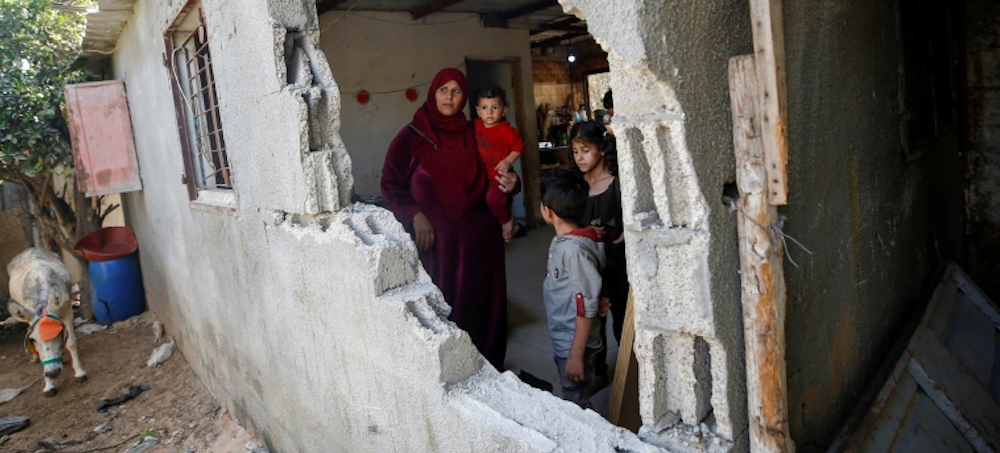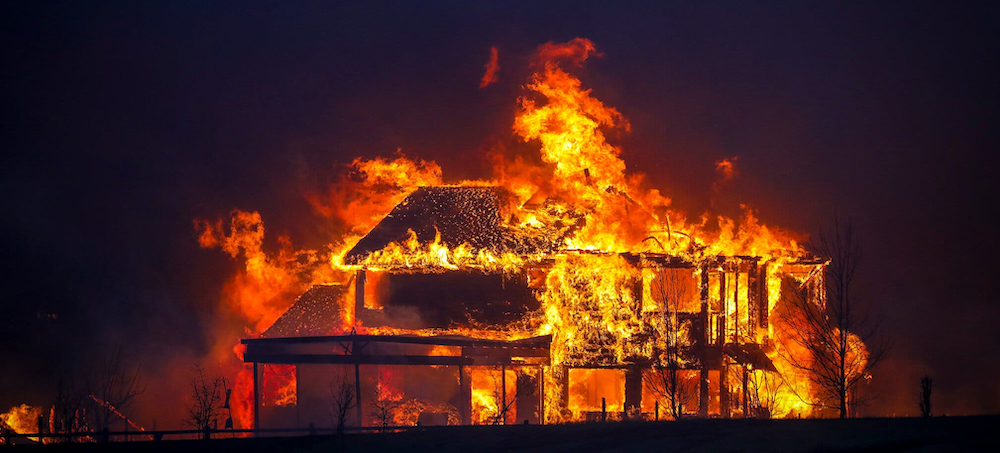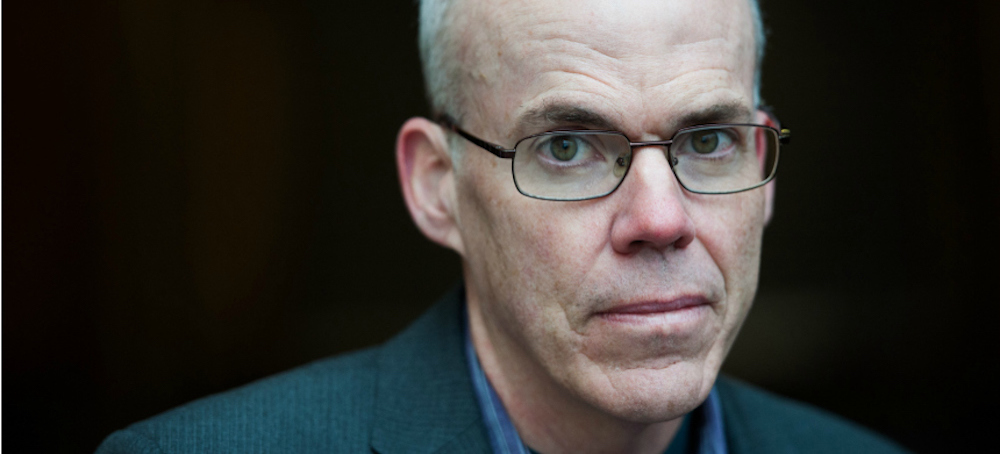Live on the homepage now!
Reader Supported News
The need to appease the West Virginia senator is gone now, and not just on the climate.
There will be endless analyses of this breakup because it’s so devastating: what Manchin really did was kill momentum for a different kind of country, which began to build with Bernie Sanders’s 2016 run for the Presidency. That campaign and its 2020 successors (including Elizabeth Warren’s Presidential bid) uncovered a deep progressive streak in what was supposed to be a center-right country; Biden got the Presidency but Bernie got the bill, a serious return to the days of L.B.J. and the idea that big government can solve problems.
The polling data make clear that most of the measures in the bill have the support of most of the people in the country—but we’re past the point where anyone takes actual majorities of Americans seriously. The more critical data points: Manchin received more money from the fossil-fuel industry during the past election cycle than did anyone else in the Senate, and the Koch network came out hard against the bill, as did the U.S. Chamber of Commerce. All those Fortune 500 companies that are forever insisting how much they care about diversity and sustainability banded together to pressure Manchin, because they care far more about the corporate tax rate.
Against this backdrop, Biden’s hard-earned mastery of legislative bargaining was to be the equalizer. But what was he supposed to do other than what he did: give in to Manchin over and over, in the hope that he would soften? Manchin stripped the bill of the climate plan that was at its heart, leaving behind only a series of tax credits for renewable energy. When he demanded that the President pass and sign the industry-friendly infrastructure bill before the B.B.B., Biden persuaded House progressives to go along, although it was clear the President had received no guarantees. It’s been a dismal, degrading process, and you had to be a pie-in-the-sky optimist (which may describe Biden) not to fear that this would be the eventual outcome.
But Manchin didn’t just derail the President’s legislative agenda; he also kept Biden from using another suite of powers that belong to the executive alone. Think about climate change: the Biden Administration, which ran on a promise to stop new leases for oil and gas on public lands, just last month approved the largest offshore lease deal in history. The Administration claimed publicly that a court decision had forced its hand, but an earlier memo indicates that officials didn’t really believe that. More likely, they feared upsetting Manchin. Similarly, the Administration has refused to review the Line 3 tar-sands pipeline across Minnesota, even though it’s the same size and carries the same crude as the Keystone XL pipeline, which the Obama-Biden Administration blocked, way back in 2015, on the ground that it would damage the climate. The climate crisis has not, to put it mildly, improved since 2015; the only logical explanation for not blocking Line 3 is a need to appease Joe Manchin, who has taken to calling for a revival of Keystone.
That need to appease is gone now, and not just on the climate. If you’re the President, there’s no need to prove to Manchin that you’re going to be “tough on spending,” so why not call off your plan to start collecting student debts again? Why not use every power still at your disposal to do what you can for the country while you’ve got some power? Acting boldly carries risks. With the Senate split fifty-fifty, if you give Manchin reason to switch parties you lose your ability to appoint more judges, for instance; the power that comes with even a tenuous majority is very real. But using executive authority—and boldly—may be the only way that Biden will get anything done, as long as Manchin (and, perhaps, Kyrsten Sinema) block effective legislative action, alongside a solid phalanx of fifty Republicans. Points to Biden for trying, but, at some point, even in Washington, no really does mean no, and you need to move on as best you can.
 Trump supporters stand on a Capitol Police armored vehicle as others take over the steps of the Capitol, Jan. 6, 2021. (photo: Bill Clark/CQ-Roll Call/Getty Images)
Trump supporters stand on a Capitol Police armored vehicle as others take over the steps of the Capitol, Jan. 6, 2021. (photo: Bill Clark/CQ-Roll Call/Getty Images)
As the country nears the first anniversary of the storming of the Capitol, the U.S. attorney’s office in the District, the largest office of federal prosecutors in the nation, released a breakdown of the arrests and convictions associated with the attack.
Of those arrested, 225 people were charged with assault or resisting arrest. More than 75 of those were charged with using a deadly or dangerous weapon against police officers. The office said 140 police officers, including Capitol officers and members of the D.C. police department, were victimized during the attack.
The office said about 10 individuals were charged with assaulting members of the media or destroying their equipment.
Some 640 people were charged with entering a restricted federal building or its grounds. And another 75 were charged with entering a restricted area with a deadly weapon.
Prosecutors in the office have been working with the FBI as well as prosecutors in various locations around the nation. The office said the individuals arrested come from nearly all 50 states.
One person, 35-year-old Ashli Babbitt of California, was fatally shot by a Capitol Police officer as she tried to breach a set of doors deep in the Capitol during the riot. Federal prosecutors later cleared the officer of any wrongdoing in Babbitt’s death.
According to a May estimate by the Architect of the Capitol, the attack caused about $1.5 million worth of damage to the building.
About 165 individuals, the office said, have pleaded guilty to a variety of federal charges, from misdemeanors to felony obstruction.
So far, 70 defendants have received some kind of sentence from a judge. Of those, 31 people were ordered jailed, and 18 were sentenced to home detention. The remaining 21 defendants were placed on probation.
In early December, Robert Scott Palmer, 54, of Largo, Fla., received the longest prison sentence to date among those convicted in the attack. A U.S. District Court judge sentenced him to more than five years in prison.
In October, Palmer pleaded guilty to resisting arrest and assaulting officers with a dangerous weapon. Prosecutors said Palmer broke into the Capitol building and, while inside, threw a wooden plank at police officers; then, they said, while he was on the front line of the riot, he sprayed police officers with a fire extinguisher and hurled the emptied extinguisher at the officers. No officers, prosecutors said, were injured.
The FBI is continuing to identify suspects in the case and is collecting tips at fbi.gov/wanted/capitol-violence, 1-800-CALL-FBI (800-225-5324) or tips.fbi.gov.
 A healthcare worker and a patient. (photo: ABC News)
A healthcare worker and a patient. (photo: ABC News)
The Omicron variant is quickly spreading across the world. Here's what we know about its incubation period, symptoms and severity.
After first devastating New York City, the Omicron variant has spread nationwide, forming new hotspots all across the country. New York’s neighboring states have been reporting a record number of cases, with New Jersey being hit especially hard.
A consistent hotspot for the virus, Florida reported 46,000 new cases on Tuesday, breaking all previous single-day records. Washington, D.C. is also dealing with a major surge as the nation’s capital is currently recording 1,192 new cases per day. And the increase isn’t limited to the U.S. mainland, as Hawaii and Puerto Rico are seeing abrupt surges.
Omicron accounts for more than half of the cases genomically sequenced as of Dec. 19. But Delta is also part of this surge, as both variants ravage a country that has shown itself to be consistently ill-equipped for the worst.
Via #SKy25
— Peter Wilson (@PetesWire) December 29, 2021
The line of cars and people waiting for COVID testing at the Square One Mall in #Saugus at this hour.@boston25 pic.twitter.com/qSVnZ7tcO6
How fast does the Omicron variant spread?
There seems to be little doubt that Omicron spreads faster than any previous variants. Since its discovery in South Africa, the Omicron wave has dominated COVID-19 cases in the U.S.
All signs point to a variant that is far faster at spreading than the already rapid Delta variant. Studies have found Omicron to be three times more likely to spread in a household than the Delta variant.
Preliminary data point to the specific mutations that the Omicron variant exhibits, making it infect and multiply 70 times faster in the human bronchus than the previous variants. The same study concludes that Omicron is ineffective at replicating in deeper lung tissue than the original virus, possibly making it less severe.
How long does Omicron incubate?
One of the prominent issues with past COVID variants was not just their easy transmissibility (which pales in comparison to Omicron) but their long incubation periods. The original and the Delta variant have incubation periods as long as 14 days. The Omicron variant, according to a CDC study, has an incubation period between 3 to 5 days.
The initial issue was the uncertainty that the long incubation periods created, but the rapidness of the Omicron variant does present a unique set of problems.
The Omicron variant’s easy spreadability coupled with its short incubation period makes it seem as if everyone is getting COVID, and though that is hyperbole, Omicron spreads like wildfire in densely populated areas. That’s resulted in shutdowns of services and businesses as many workers fall ill.
The unvaccinated and kids are overloading hospitals
By all accounts, the symptoms for Omicron are milder than for Delta or the original variant. Even so, COVID patients are putting a major strain on the nation’s already fragile healthcare system. As of December, a little over 60% of the U.S. population is vaccinated, which leaves about 132 million people still unvaccinated.
The line to get into Miami-Dade’s 24 hour COVID testing site is miles long right now. This is the wait before you even get into Tropical Park where you then have to zig zag around cones before the testing area. pic.twitter.com/4VpPzR7glf
— Brian Entin (@BrianEntin) December 30, 2021
The initial issue was the uncertainty that the long incubation periods created, but the rapidness of the Omicron variant does present a unique set of problems.
The Omicron variant’s easy spreadability coupled with its short incubation period makes it seem as if everyone is getting COVID, and though that is hyperbole, Omicron spreads like wildfire in densely populated areas. That’s resulted in shutdowns of services and businesses as many workers fall ill.
The unvaccinated and kids are overloading hospitals
By all accounts, the symptoms for Omicron are milder than for Delta or the original variant. Even so, COVID patients are putting a major strain on the nation’s already fragile healthcare system. As of December, a little over 60% of the U.S. population is vaccinated, which leaves about 132 million people still unvaccinated.
At the pharmacy - line wrapped around the building for Covid testing. Unfortunately no social distancing and most people in subpar masking- so there’s a good chance with Omicron that many of these people in line who are negative will actually be Covid positive in a few days…🤦🏽♂️ pic.twitter.com/dRtMYUc6GF
— Jerome Adams (@JeromeAdamsMD) December 24, 2021
Walensky said that the CDC’s concerns over rapid tests stem from growing evidence that the tests might not be sensitive enough to detect the Omicron variant.
Currently, the US is suffering from a supply shortage for COVID tests, though Walensky denies that the shortage has anything to do with the CDC’s decision to exclude a negative test requirement.
The state of COVID testing
The US is currently suffering from a shortage of COVID-19 test kits, leaving many Americans in the worst hotspots scrambling to get tested. Hospitals are hit especially hard as Americans resort to going to the ER just to get tested, stretching their resources thin.
Beyond the testing shortages, the Omicron variant presents a new set of issues for the two types of tests that have been reliably used in the pandemic so far.
Rapid Test: The COVID-19 antigen test, also known as the rapid test, may not be as sensitive to Omicron as it was to the original virus and the Delta variant. With the popularity of at-home rapid tests, this presents a problem of accuracy for many Americans.
PCR Test: Polymerase chain reaction tests, or PCR tests, are far more accurate at detecting the Omicron variant. But are not reliable at determining whether or not a person is still transmitting the virus since the test can show positive results for up to 12 weeks after infection.
How severe is Omicron?
Omicron symptoms, from the outset, look no different from the original virus and the Delta variant:
- Coughing
- Fatigue
- Congestion
- Fever
- Sore throat
- Headache
- Sneezing
The distinct loss of taste or smell that was the calling card of past variants doesn’t seem as widespread with the Omicron variant. The actual severity of these symptoms varies from person to person, and could be dependent on vaccination status and an individuals own immune response.
It will be weeks before we know how deadly the Omicron variant really is, since deaths are a lagging indicator. An unvaccinated Texas man in his 50s became the first recorded death from Omicron in the U.S. While many of the cases reported have been mild, the Omicron variant’s ability to spread at lightning speed makes it a cause for concern.
 Elon Musk. (photo: Sky News)
Elon Musk. (photo: Sky News)
Time magazine picked a billionaire unconcerned with human misery as ‘Person of the Year’. This is quite befitting.
The second paragraph of the profile is devoted to further exploring this last theme:
“‘Just dropping some friends off at the pool’, the 50-year-old zillionaire informed his 66 million Twitter followers on the evening of Nov. 29, having previously advised that at least half his tweets were ‘made on a porcelain throne’”.
Presumably, the excremental intro is meant to project a down-to-earth, human dimension onto the tyrannical South African entrepreneur who wants to colonise Mars and has officially appointed himself “Technoking” of Tesla. Call it poop-washing, if you will.
For the next zillion or so paragraphs of the profile, Time magazine proceeds with its grotesque apologetics on behalf of 2021’s Chosen Person – explaining that, while Musk is “easily cast as a hubristic supervillain, lumped in with the tech bros and the space playboys”, he is ultimately “different”. This assessment appears directly after a discussion of Musk’s downplaying of the coronavirus threat and violation of local pandemic regulations to keep his factories running – all of which, Time muses, suggests that “the vast expanse of human misery can seem an afterthought to a man with his eyes on Mars”.
Might it not be more charming, then, to select a Person of the Year who is actually concerned with alleviating human misery – as opposed to someone chasing a dystopian vision of an exclusive future universe run by and for Elon Musk? Granted, this is the same magazine that named Adolf Hitler “Man of the Year” in 1938.
Marveling at “the man who aspires to save our planet and get us a new one to inhabit”, Time asserts that Musk is “arguably the biggest private contributor to the fight against climate change”. For a more grounded view of reality, consider the words of Max Ajl, author of the acclaimed book, A People’s Green New Deal, who remarked in an email to me that: “if capitalist destruction of the ecology were to take on human form, it would look like the Afrikaner aspiring cosmonaut Elon Musk”.
Ajl went on to observe, “In true apartheid form, spaceship rides envisioned by the Tesla tycoon will emit more CO2 in a few minutes than poor people emit in their entire lives”.
Capitalism, of course, is fundamentally anti-human – as, it seems, is Musk, whose own brother and business partner Kimbal acknowledges in the Time profile that Elon’s “gift is not empathy with people”.
Case in point: in October, a federal jury ordered Tesla to pay almost $137m to a Black ex-employee who, as the Washington Post notes, claimed workers were subjected to “a scene ‘straight from the Jim Crow era’”, characterised by rampant racist abuse and supervisors who refused to address the issue.
Then in December, six women filed separate suits against Tesla for alleged sexual harassment in the workplace – with many of them contending that Musk’s own frequent lewd behaviour on Twitter only encouraged sexual taunts and other abuse in a male-dominated work environment.
Add to this Musk’s willful endangerment of employees’ lives during the pandemic and other violations of labour laws – including his underhanded machinations and threats against workers wishing to unionise – and one begins to worry about how that whole Mars idea will pan out.
But anyway, why should workers bother trying to exert a modicum of control over their existences when the “brooding, blue-skinned man-god” – words courtesy of Time – already knows what is best for them? Again, it appears that Musk and only Musk knows what is good for everyone – like when he implied to Time that, were he to pay US government taxes proportionate to his astronomical wealth, this would “not result in, actually, the good of the people”, because the US government is “inherently not a good steward of capital”.
Never mind that this same government has also flung its capital at – what do you know? – Musk’s own projects, including via a critical $465m federal loan to Tesla in 2009. In fact, Musk and his companies have benefitted over the years from billions of dollars in public subsidies and government contracts. And yet, when US Senator Ron Wyden tweeted in November in favour of a Billionaires Income Tax, Musk tweeted back in Twitter shorthand with the mature and relevant suggestion that Wyden’s profile picture looked like he had just had an orgasm.
The Time tribute does mention these incidents, but manages to cast them as the fallout of a fascinatingly complex mind: that of a “clown, genius, edgelord, visionary, industrialist, showman, cad” as well as a “shy South African with Asperger’s syndrome, who escaped a brutal childhood and overcame personal tragedy” to pursue “cosmic ambition”. Muskian petulant tyranny is euphemised into a “hard-driving style” that takes a “legendary” toll on his staff. Tesla is said to maintain a “hard-charging approach”.
But while Time’s selection of Musk as its person of 2021 has rightfully generated controversy, he does perhaps appropriately embody what was an all-around sick year in terms of capitalism and the related maladies of coronavirus and climate change.
And as the world’s richest man tweets away from his porcelain throne into an ever more brutal future of elite despotism and collective tragedy, it seems it is a very fecal matter, indeed.
 U.S. Customs and Border Protection officers direct vehicles reentering the U.S. from Canada in Detroit, August 9, 2021. (photo: Matthew Hatcher/Getty Images)
U.S. Customs and Border Protection officers direct vehicles reentering the U.S. from Canada in Detroit, August 9, 2021. (photo: Matthew Hatcher/Getty Images)
“A review is underway to ensure that the activities in question during the prior Administration remain an isolated incident and that proper safeguards are in place to prevent an incident like this from taking place in the future,” Luis Miranda, a spokesperson for CBP, told Yahoo News.
CBP’s internal probe was prompted by Yahoo News’ reporting earlier this month on Operation Whistle Pig, a leak investigation targeting reporter Ali Watkins and her then boyfriend, James Wolfe, a Senate staffer. The investigation was launched by Jeffrey Rambo, a border patrol agent assigned to CBP’s Counter Network Division who was looking at whether Wolfe provided classified information to Watkins and other reporters.
As many as 20 national security reporters were also investigated during this time, according to an FBI counterintelligence memo included in the Department of Homeland Security inspector general report obtained by Yahoo News.
The DHS inspector general investigation was launched in response to an article in the Washington Post identifying Rambo as a border patrol agent who used a fake name to meet with Watkins, then a reporter for Politico. During the meeting, he questioned her about her sources and about her relationship with Wolfe, and also discussed leak investigations.
At the end of their two-year probe, investigators referred Rambo, his supervisor Dan White and a colleague Charles Ratliff for potential criminal charges including conspiracy and misuse of government computers. White was also referred for multiple potential counts of making false statements. Federal prosecutors declined prosecution, citing, among other reasons, the lack of policies and procedures governing their work.
Rambo told Yahoo News he was authorized every step of the way, and records included in the DHS investigative report show that his supervisor Dan White ordered him to expand his probe into journalists. White is still working at the Counter Network Division, and Rambo is currently employed as a border patrol agent in San Diego.
The Counter Network Division regularly investigated potential contacts, including journalists, as part of a process it referred to as “vetting.” As part of this process, the subject would be run through multiple databases, including a terrorism watch list.
The division regularly conducts database checks on reporters “to determine personal connections,” Rambo’s supervisor Dan White told investigators, according to the DHS investigation report obtained by Yahoo News.
Charles Ratliff, another CBP employee brought in to assist Operation Whistle Pig, used the vast resources and databases available to the division to build what investigators later described as a phone tree of contacts — mapping out connections between people to identify a hidden network. Such work, which was used to track terrorists, was also directed at Americans, including congressional members and staffers and journalists..
“When Congressional “Staffers” schedule flights, the numbers they use get captured and analyzed by CBP,” Rambo’s supervisor, White, told investigators.
“White stated that Ratliff “does this all the time –inappropriate contacts between people.”
Ratliff regularly compiled reports on members of Congress with alleged ties to someone in the Terrorist Screening Database, according to the investigative report obtained by Yahoo News.
CBP marshaled those same resources to identify journalists' confidential sources, which was then passed to the FBI.
Pulitzer Prize-winning Associated Press reporter Martha Mendoza was one of the journalists vetted by the Counter Network Division — targeted only because she’d reported on forced labor, one of the issues related to CBP’s work. Huffington Post founder Arianna Huffington was also swept up in its dragnet.
“There is no specific guidance on how to vet someone,” Rambo later told investigators. “In terms of policy and procedure, to be 100 percent frank there, there’s no policy and procedure on vetting.”
The Counter Network Division also investigated NGOs, members of Congress and their respective staffs. Enough Project, a nonprofit named by CBP as one of those organizations investigated by Rambo’s team, told Yahoo News it was troubled by the revelations.
“If the Enough Project was in fact targeted for ‘extreme vetting’ by a United States government agency for our work to improve mineral supply chains originating in the Democratic Republic of Congo and investigate corruption that robs the Congolese people of their country’s natural resource wealth, it would be deeply troubling,” the organization said in a statement to Yahoo News. “Such invasive and arbitrary targeting of human rights defenders would be a violation of privacy, a hindrance to this important work, and a waste of public resources.”
A CBP official who asked not to be named told Yahoo News that the National Targeting Center has put in place new procedures and training designed to ensure that the First and Fourth amendments are not being violated. The official declined, however, to specify what those measures were.
Congressional oversight committees have also begun looking into the division’s activities.
Rep. Benny Thompson, chair of the House Homeland Security Committee and Carolyn Maloney, chair of the Committee on Oversight and Reform, sent a letter to the DHS inspector general requesting the report.
“We write you regarding disturbing reports that the Customs and Border Protection (CBP) Counter Network Division used government databases to “vet” journalists, government officials, congressional members and their staff, NGO workers, and others by obtaining travel records as well as financial and personal information,” they wrote in a Dec. 14 letter to the DHS inspector general.
“The Office of Inspector General (OIG) investigated at least one Counter Network Division employee, Mr. Jeffrey Rambo, who used government databases to gather information on an American journalist Ali Watkins,” Thompson and Maloney wrote the DHS, citing reporting by Yahoo News.
Chairs Thompson and Maloney requested a copy of the Office of the Inspector General report for its investigation into Rambo and any other reports related to conduct by the Counter Network Division by Dec. 21, 2021. The DHS inspector general has to date not provided the committees with the requested information, according to congressional sources.
Sen. Ron Wyden, chair of the Senate Finance Committee, which has oversight over CBP, has also requested a copy of the inspector general report, but a spokesman for Wyden said he has still not received a copy.
The inspector general did not respond to a request for comment from Yahoo News about the congressional requests.
The DHS has declined to answer any questions posed by Yahoo News about Operation Whistle Pig and the activities of the Counter Network Division. However, in a statement, the department said that DHS Secretary Alejandro Mayorkas “is deeply committed to ensuring the protection of First Amendment rights and has promulgated policies that reflect this priority.”
“We do not condone the investigation of reporters in response to the exercise of First Amendment rights,” the statement continued. “CBP and every component agency and office in the Department will ensure their practices are consistent with our values and our highest standards.”
 A Palestinian woman looks out of her house damaged in an Israeli bombing in Beit Hanoun in the northern Gaza Strip. (photo: Mohammed Salem/Reuters)
A Palestinian woman looks out of her house damaged in an Israeli bombing in Beit Hanoun in the northern Gaza Strip. (photo: Mohammed Salem/Reuters)
Al Jazeera talks to young Palestinians injured during Israel’s May offensive and now left with permanent disabilities.
It was the fourth major offensive launched by Israel on the Palestinian territory in 14 years, compounding the already dire living conditions and the high rates of poverty and unemployment in Gaza which has been under an Israeli-Egyptian blockade since 2007.
The assault in May killed at least 260 people, including 39 women and 67 children, and wounded more than 1,900, according to the health ministry in Gaza. The bombardment also destroyed 1,800 residential units and partially demolished at least 14,300 other units.
Tens of thousands of Palestinians were forced to take shelter in United Nations-run schools.
About seven months later, the reconstruction process has slowly begun, albeit with Israel continuing to prevent the entry into Gaza of many materials it says could also be used for military purposes.
Talks mediated by Egypt have failed to reach a permanent ceasefire between Israel and Hamas, the Palestinian group which rules Gaza, and tensions remain high.
Many people in Gaza have been left to cope with the aftermath of the 11-day assault, including many young people who were left seriously wounded.
Al Jazeera talked to three young people, who were injured and left with permanent disabilities during the offensive, to discuss what they endured and what they hope for in the new year.
‘Mum, I wish I could see your face’
Mohammed Shaban’s only wish for the new year is to be able to see again. The seven-year-old lost his eyesight on the first day of the Israeli offensive in May.
That day, Mohammed went out with his mother, Somayya, 35, to buy clothes for him and his siblings.
“He was very happy and could not wait to go home to show his new shoes to his sisters,” Somayya told Al Jazeera.
“Suddenly, a huge explosion hit the area. I didn’t remember what happened. Dust, chaos, people screaming, blood …”
Somayya stopped talking for a moment, then continued. “I remembered Mohammed, I started screaming: ‘Where is my son? Where is my son?'”
Mohammed’s eyes were severely wounded when an Israeli air attack hit two people on a motorcycle in Jabalia in the north of the Gaza Strip. He was rushed to hospital.
“His face was covered in blood and his eyes were bleeding terribly. I lost consciousness when I saw him,” Somayya said.
After several attempts, the doctors decided Mohammed’s eyesight could not be saved and they had to remove his eyes.
“I can’t stop crying whenever I see him. He keeps asking his siblings, ‘Why can I only see black darkness? Why can’t I go to my school?'” she said.
“Last night, he told me: ‘Mum, I wish I could see your face.'”
Mohammed was recently admitted to a school for visually challenged children, but his mother has no hope for the new year.
“After what we have seen during this year, I cannot expect any better. Our days are the same. I believe Gaza’s destiny is to face more torture and suffering,” she said.
She said her only wish for 2022 would be for Mohammed to see again. “I wish I could give him my eyes.”
A report by Defense for Children International (DCIP) said 2021, which saw the killing of 86 Palestinian children in the occupied territory, was the deadliest year on record since 2014.
“During the 11-day military assault, Israeli forces killed Palestinian children using tank-fired shells, live ammunition, and missiles dropped from weaponised drones and US-sourced warplanes and Apache helicopters,” said the report on the May assault, dubbed Operation Guardian of the Walls.
‘I want to be a doctor when I grow up’
Farah Isleem, 12, feels more optimistic in the new year, despite losing her leg in May 2021.
“It was around six o’clock at morning. I was sleeping. Suddenly I woke up to an explosion. I was not able to move. Everyone was screaming around me,” she told Al Jazeera.
An Israeli raid had hit Farah’s home on the fifth floor in a building in the al-Sabra neighbourhood in central Gaza City.
Hazem Isleem, Farah’s father, is a security worker in Gaza City’s al-Shifa hospital. That night, Hazem was at work, dealing with patients and people being evacuated from bombed areas.
His seven children were rushed to the hospital after the bombing. Six suffered minor wounds, but Farah was badly hurt.
“When I first saw her, I realised her leg would have to be amputated,” he said. “It was shattered and bleeding severely.”
Farah was given a medical referral to Jordan, where she travelled with her mother three days after she was injured.
After trying to save her leg for 15 days, the doctors decided it would have to be amputated. A prosthetic limb was fitted to her leg later.
“Imagine your beautiful and intelligent child having her leg amputated at this young age. It is a very hard feeling,” Hazem said.
Upon Farah’s return from Jordan after a month, her family and school organised a reception party to welcome her back.
“My big focus now is my studies at school,” Farah told Al Jazeera. “I face some obstacles going up and down the stairs, but my family always helps me.”
Farah told Al Jazeera before her injury, she was afraid of the sight of blood and of injuries. But now she wants to be a doctor, and her New Year’s wish is to learn English fluently as it would help her achieve her dream.
“I was in so much pain during the treatment process. But thanks to God everything is ok now,” she said with a smile.
According to UNICEF, before the escalation in violence, one in three children in Gaza already required support for conflict-related trauma. The UN body stressed the need for mental health and psychosocial support for children facing dire living circumstances.
The organisation also said tens of thousands of children in Gaza will require humanitarian assistance to access safe drinking water and basic sanitation over electricity shortages affecting water production in the besieged territory.
‘I wish I could walk again’
Eighteen-year-old Mahmoud Naim lies on his back in bed, unable to move.
He is paralysed and unable to feel the lower part of his body since the shrapnel from an Israeli shell hit him in the back and pierced parts of his stomach on May 18.
“I went out to the street to buy bread for my siblings. I saw a friend and stood there talking to him. Suddenly there was an explosion. I don’t remember anything after that,” Mahmoud told Al Jazeera.
“My life has been turned upside down,” he said.
Mahmoud stayed in the intensive care unit for several days before he was referred to Egypt for further treatment. He underwent seven surgeries and still needs intensive physiotherapy sessions and medication.
Shrapnels are still stuck in Mahmoud’s back. They should be removed as soon as possible so that his condition improves.
“Currently I can’t move at all on my own. My mother helps me, but my brothers are [too] young,” he said.
“Sometimes I stay on the bed waiting for my cousins to come if I want to move.”
Before his injury, Mahmoud worked in a shop to support his family. His father has been sick for a long time and his condition deteriorated after his son’s injury.
Mahmoud told Al Jazeera he heard of reports claiming the shell that hit him was not Israeli, but a Palestinian shell that hit him by mistake.
“It was a continuous state of war in which everyone was under bombardment and terror, and the victims were all innocent people,” he said.
“Despite what happened to me, I am optimistic about the beginning of 2022 as every year is a new start.
“Enough of the war and enough of what is happening to us in the Gaza Strip. I hope calm prevails, our living conditions improve and I wish I could walk again.”
 A house in Louisville, Colorado, was consumed by fire. (photo: Marc Piscotty/Getty Images)
A house in Louisville, Colorado, was consumed by fire. (photo: Marc Piscotty/Getty Images)
Hundreds of homes have been destroyed in Superior, Colorado.
As with many climate change-amplified disasters, the conditions that set the stage for the explosive and fast-moving fires had been developing and intensifying in the months prior.
It has been very dry and very warm across Colorado for several months with various temperature and precipitation records broken in both Boulder and Colorado as a whole. The period of July 1 to Dec. 15, 2021, was the warmest and driest on record for the city of Denver. The city is also on track to have one of their warmest Decembers on record.
Earlier in the month, Denver set a record for its longest stretch without snow, 232 days. When it finally snowed on Dec. 10, it was the latest measurable amount on record, and was two months later than the average first measurable snowfall. Through the end of December, Denver typically sees around 20 inches of snow. On the evening of the fires on Dec. 30, it had only seen 0.3 inches.
The drought monitor released just hours before the fires showed all of Colorado in drought, with over 22% of the state, including eastern Boulder County, in extreme drought.
While strong wind events are common in Colorado, a wind event with gusts over 100 mph, combined with very dry conditions became a recipe for disaster. Strong wind events in Colorado can also be extremely localized due to several microclimates caused by rapid elevation and terrain changes within the state.
Unfortunately, these conditions were the key player for the rapid and erratic spread of the Marshall fire in Boulder County, which has become the most destructive fire ever in Colorado based on the number of structures destroyed. This makes back-to-back years Colorado has seen its most destructive fire ever. Prior to Marshall fire, Colorado's most destructive fire was the East Troublesome Fire in 2020.
While it is challenging to link climate change to any single event, or a even a couple events over the years, as the parts of the western U.S. become drier and deal with more extreme temperatures, that events like erratic and rapid fire spread will likely become more common.
Follow us on facebook and twitter!
PO Box 2043 / Citrus Heights, CA 95611


